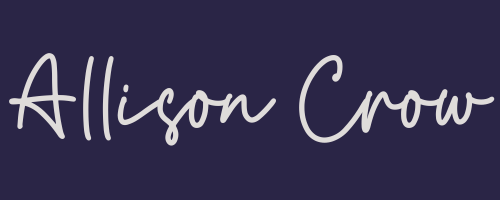
Coaching is an art and science of behavior change, and wouldn’t it be fun if it were actually as easy as “change your thinking, change your life?” (And yes, I believed it was that simple for years- I’m sorry).
Just changing our thinking is a gross oversimplification. It leaves millions frustrated and fleeced.
One (of many) significant determiners of our lives is not just our thinking or our emotions but actually our habitual and subconscious attempts NOT to feel disconnection, shame, rejection, fear, sadness, and other uncomfortable and painful emotions.
These attempts show up as coping mechanisms that serve as armored protection from these feelings.
Hi. My name is Allison, and I’m a recovering, over-armored woman.
Let me go way back for a moment so we can move forward: It is a natural subconscious desire to connect and repair connection if the body senses a disconnect. We are wired for it. We learn early on to manipulate the maintaining of that connection with our caregivers. As children, when the connection with our caregivers conflicts with authenticity – we innately choose connection every time. We choose the coping mechanism over living in our true selves.
Here’s the burn for high-achievers: The coping mechanisms that worked for us are socially acceptable and highly admirable. They are often praised and rewarded by society.
We give and overgive. We perform, we people please, we over-function, and we caretake others, often at the expense of our true selves. If you are neurodivergent (like I am), then we mask along with our armor. It feels good until it begins not to feel good, and then what?

We look up and see all the perceived excellence around us but can feel empty or like something is missing – yet we gaslight ourselves into gratitude. That is not compassion; that is comparison.
My clients with longevity in the personal development space do this the most. You’ve been taught to shame your way into appreciation instead of taught how to cultivate it from within.
Side note: From my “I’m still learning understandings” of ADHD brains – executive function fails in the presence of shame and pain as motivation – we, instead, pursue the feel-good rewards.
Where does that leave us when these coping skills actually begin to perpetuate our struggle?
This is the place many of my experienced business owner clients are in, at the crossroads of should and self-trust.
The Crossroads of SHOULD and SELF-TRUST
The shoulds are familiar and known; they are reliable even if they come with a side of suffering.
The uncomfortable known will always be more appealing to the unknown.
The road to self-trust requires both learning new skills and unlearning old ways of habitual coping. It also requires seeing all the systems that taught you ON PURPOSE not to trust – and that can be downright depressing and bring up grief.
- The Skill of Noticing
- The Skill of Being With and Presence (instead of fixing or solving)
- The Skill of Sensing Cravings (in self and others)
- The Skill of Building Inner Relationships
These are just 4 (certainly not all) of the Self Leadership skills I help my clients develop in their lives and work. These skills can present as great insights in conversation -yippey yay-yay-woo-hoo; but if it ends there, it’s just entertainment.
We must build a muscle memory for these skills in the body and behavior, and ultimately in the nervous system if we want lasting change. . . If we want to learn to be in the world from a place of true SELF Trust.
Cheers to you on your journey of SELF-Trust.
And #icanhelpwiththat – if you are ready to build your self-trust skills, here are a few ways I can support you.
This is the work I am helping my business owner clients do. These are the conversations in my book Unarmored: Finding Home in The Wild Edges of Being Human. This is some of the focus of my live event Camp Cultivate in May, and this is the foundation from which we do group life and business coaching in my small membership program, Soulies: Self Leadership Society.
Love, Allison


